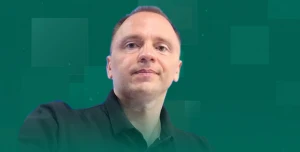
NATO Summit: This is not invitation to Ukraine, but to Russia to become partner
The Alliance's decisions are wrong and will lead to even greater instability in the world. Those who play it too safe will find themselves at the epicenter of the storm
Unfortunately, NATO does not learn from its mistakes
The verbal equilibristics about "bridges" and "irreversibility of the path" is an inability to make an adult and strong decision. It is an attempt to keep in mind the idea that it will be possible to reach an agreement with Russia someday and somehow.
This is an invitation not to Ukraine, but to Russia to become a partner, and not to break the system that many NATO countries have been used to living in for the past 30 years.
The 40 billion in aid to Ukraine from NATO countries is nothing compared to the 120 billion that Putin spends annually on the war. And if we compare the GDP of NATO countries and Russia, it is a big nothing.
Ukraine already brings added value to NATO. Ukraine tests Western weapons, it advertises Patriot (if only there were enough of them), and its military can already be the best instructors for the Alliance. Because they see and experience real war. Unlike NATO generals, who have learned from books about the confrontation with the USSR.
Instead, Ukraine is once again facing a closed door. Without a nuclear umbrella and a large pile of "security agreements" whose implementation is optional and depends solely on the political will of the signatories. Because NATO has its own challenges and its own elections. The missed moment will not come back, as it did in 2008.
Both then and now, the Alliance's decisions are wrong. They will lead to even greater instability in the world. Because those who blow on the cold will eventually be at the epicenter of the storm.
But despite everything, Ukraine will have to keep hitting this rock. It has no other choice. Ukraine has to do it.
About the author. Viktor Shlinchak, chairman of the board of the Institute of World Policy, head of the Glavkom news agency
The editors do not always share the opinions expressed by the blog authors.
- News











































